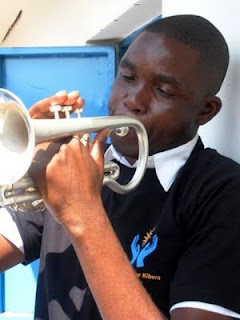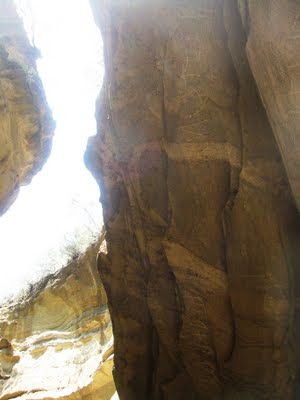About two weeks before I left, my dad posed a question to me about what my typical day in Kibera would look like. I told him to ask me when I had been there a month. I have been here almost six weeks now and I still haven't really had a 'typical day' because of the vast diversity of my activities, and the multitude of opportunities that Nairobi has to offer. It isn't unusual for me to go from Kibera to an upscale Nairobi mall in a single day, with varying degrees of whiplash. That said, there are a few things that tend to happen every day. So here it is Dad, just for you...my "typical Tuesday"...
4:48am, or about daybreak: The neighboring mosque begins the call to prayer. More significantly, this signals the guards who sit below my window in the market that it is a time to begin playing their music loudly. They play the same album every.single.morning. Good Morning Nairobi!
6:30-7:00am: I manage to get myself out of bed after a feeble attempt to get back to sleep.
7:30am: After making myself moderately presentable, I go downstairs where Mama has breakfast laid out for me. More importantly, where she has chai waiting - the famous milk masala tea that Kenyans exist on. Its no two-pump-vanilla-soy-latte, but when in Rome, right? It is hot, spicy, and contains just enough caffeine to jumpstart my day. Breakfast is usually bread, or eggs, or sweet potatoes, or sausages, but usually bread.
8:30am: I am off on my 25 minute walk to Kibera. This walk takes me through the massive Toi Market. I meet some friendly faces, some more tolerant than friendly, but I enjoy this morning walk in the cold morning air. It is the dead of winter here in Nairobi, meaning it is a brisk 60 degrees when I walk to work. BRRRR.
9:00am: Arrive at the office in Kibera and greet every staff member present with a smile and a handshake and follow-up on their family. I enjoy the fact that as time goes on we get to know each other. Sometimes I see this cat, who has adopted CFK as a home.
9:30am: A trip down to the satellite office where the SRH program is primarily located. Check in with those peeps, including the PYEs who are hanging around and the program officer Ben.
10:00am: Chai, again, this time with the staff.
10:30am: Start on whatever task I have, this can include interviews, digging through documents, organizing my to-do list, and revising the to-do list from yesterday. Things change often, but I like being on my toes.
1:00pm: Lunch! This usually involves trekking to somewhere appealing in Kibera - like Atlanta Fries (guess what they have) or Arusha Dishes which serves local cuisine. Chapo and beans it is again! For less than 50 cents, its a deal.
2:00pm: Back to the office, or home-again-home-again. Depending on the day, I trek back to the office or make my way back to my place. Because I leave my laptop at home and concentrate better in my own space, I often work the afternoon from home. Or, if I am feeling nostalgic, from the coffee shop just around the corner.
5:30pm: Mama comes home! She works in a organization in Kibera too. With these ladies!
6:00pm: Chai again. When Mama comes home, it is a boost of chai to get us to dinner, and to power Mama in her cooking. She is a fabulous cook and I really lucked out that way.
8:00pm: Dinner! Tonight it is fish, ugali, and greens. Yum.
9:00pm: Local news with the fam, they are kind enough to watch the English speaking channel. Tonight is on the new country of South Sudan and the celebrations that took place over the weekend.
10:30pm: Read, or watch 20 minutes of one of three Harry Potter movies I managed to download on my computer before I left, and fall dead asleep. What a day!



















































